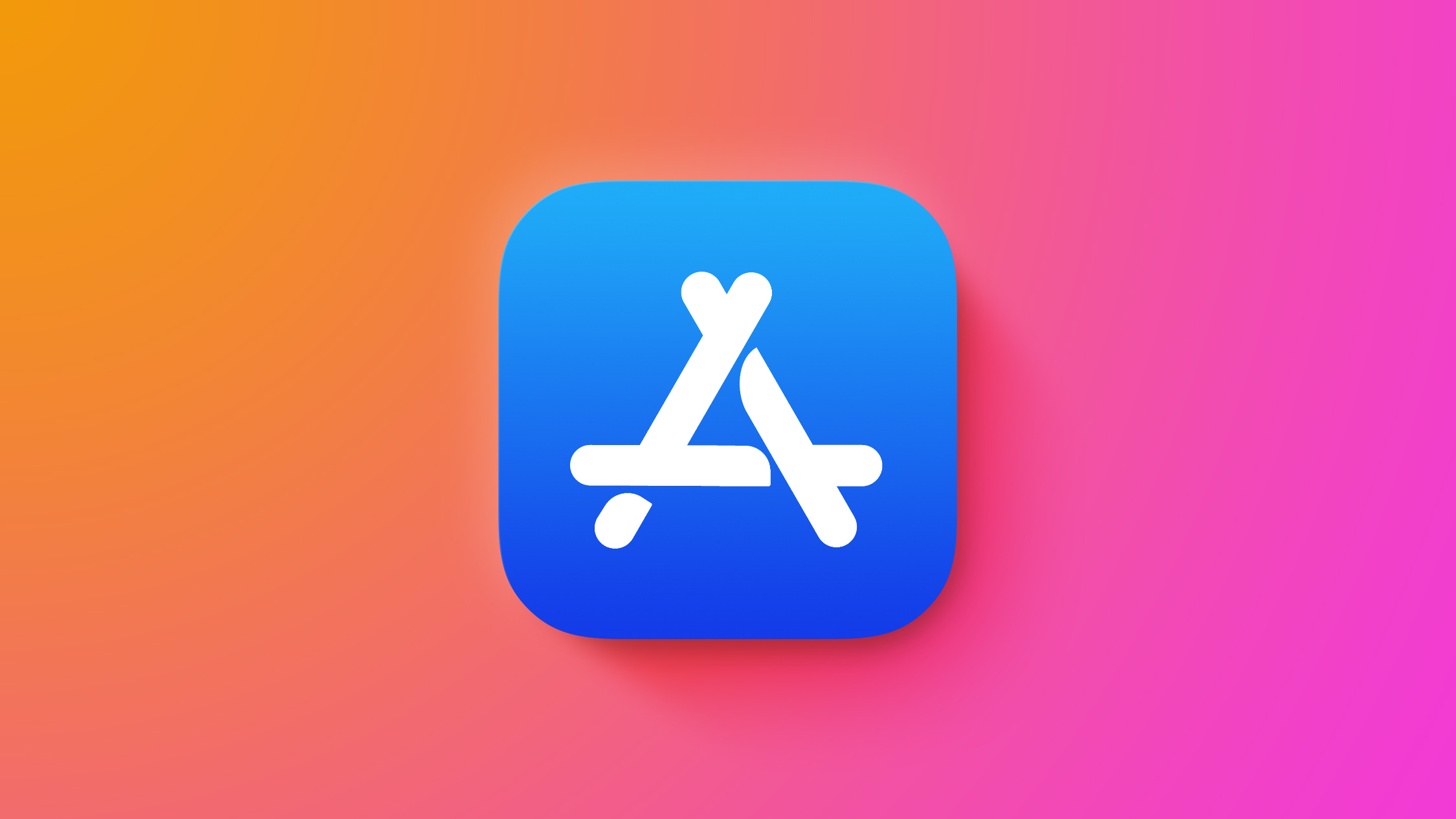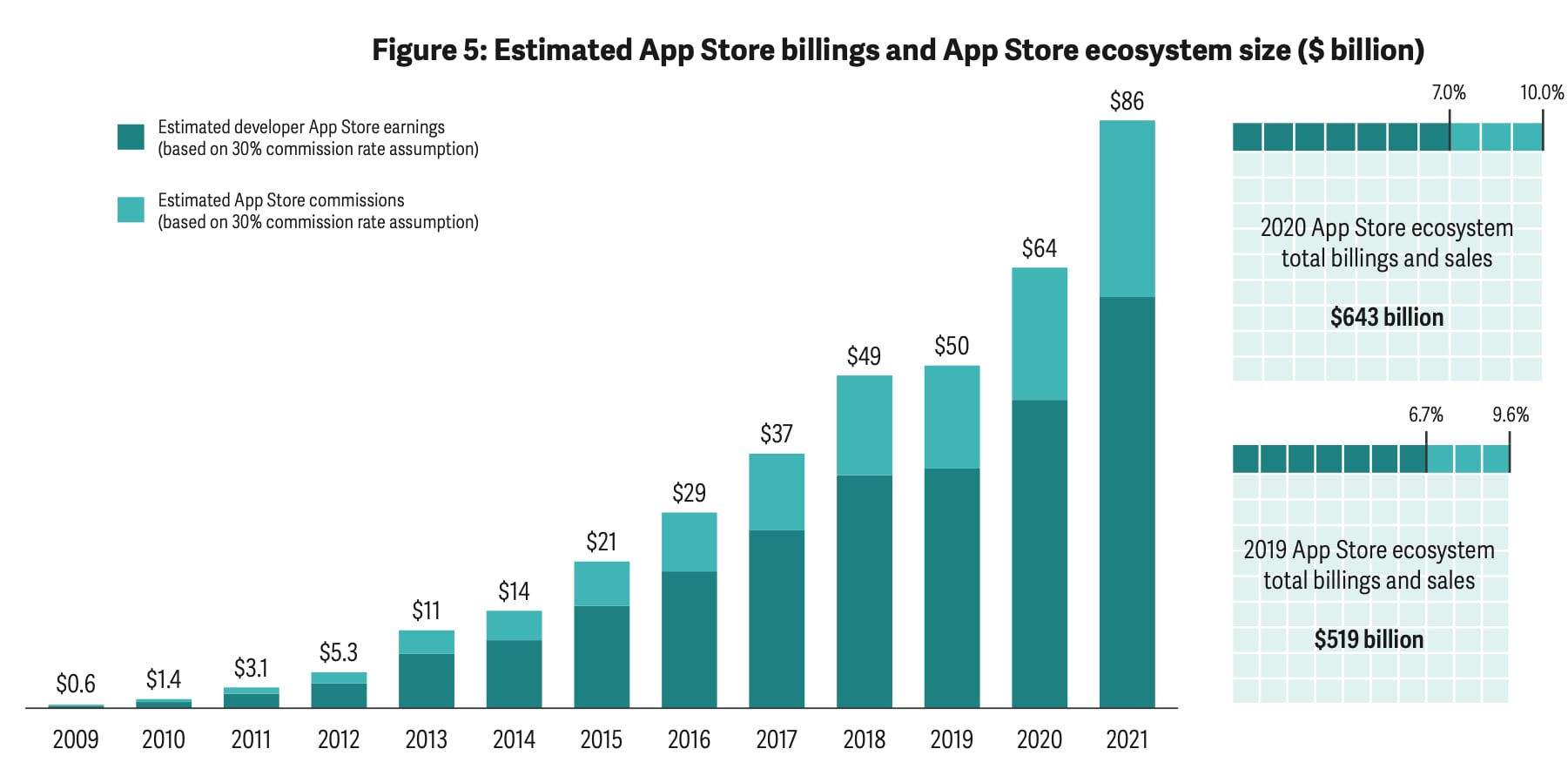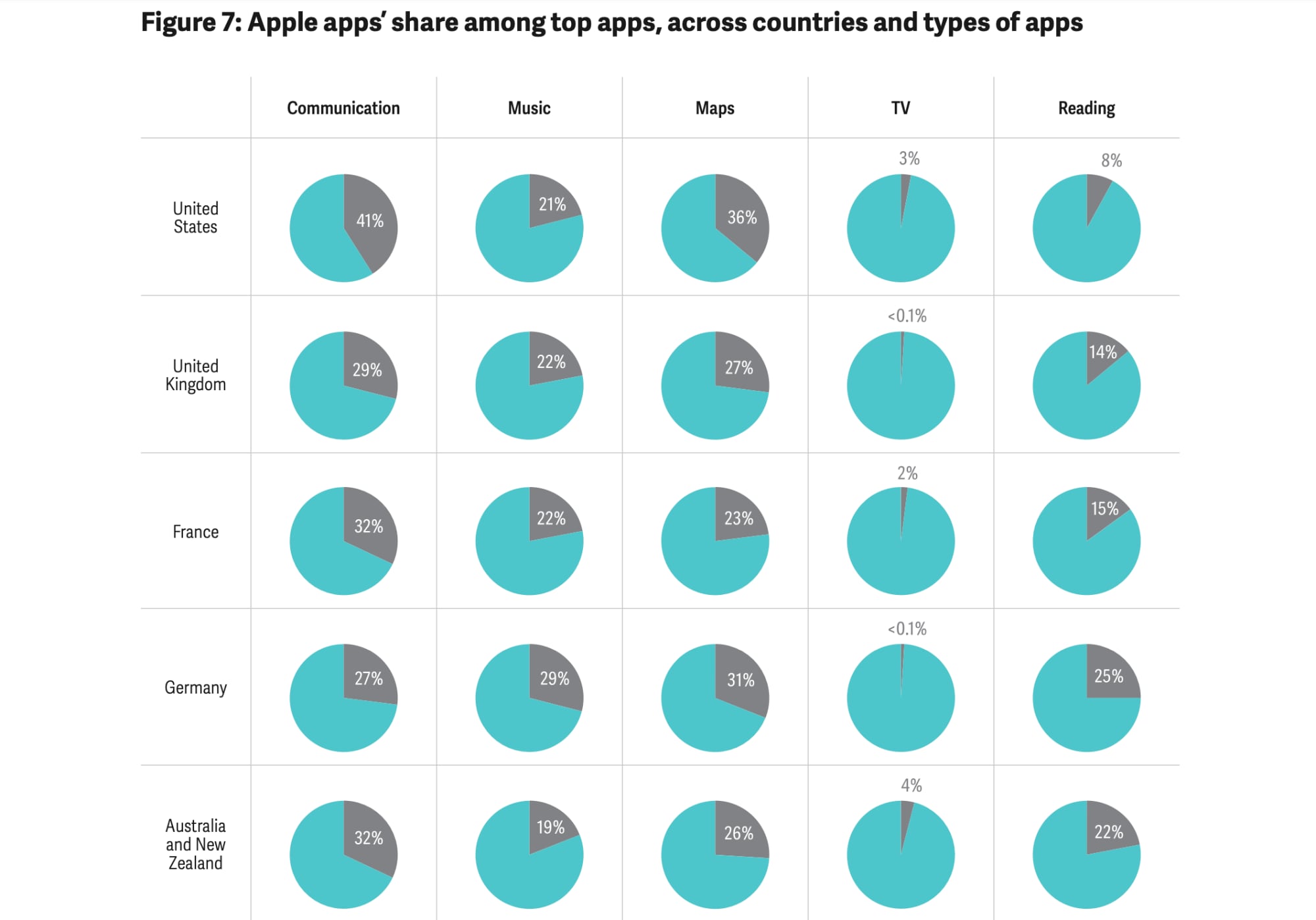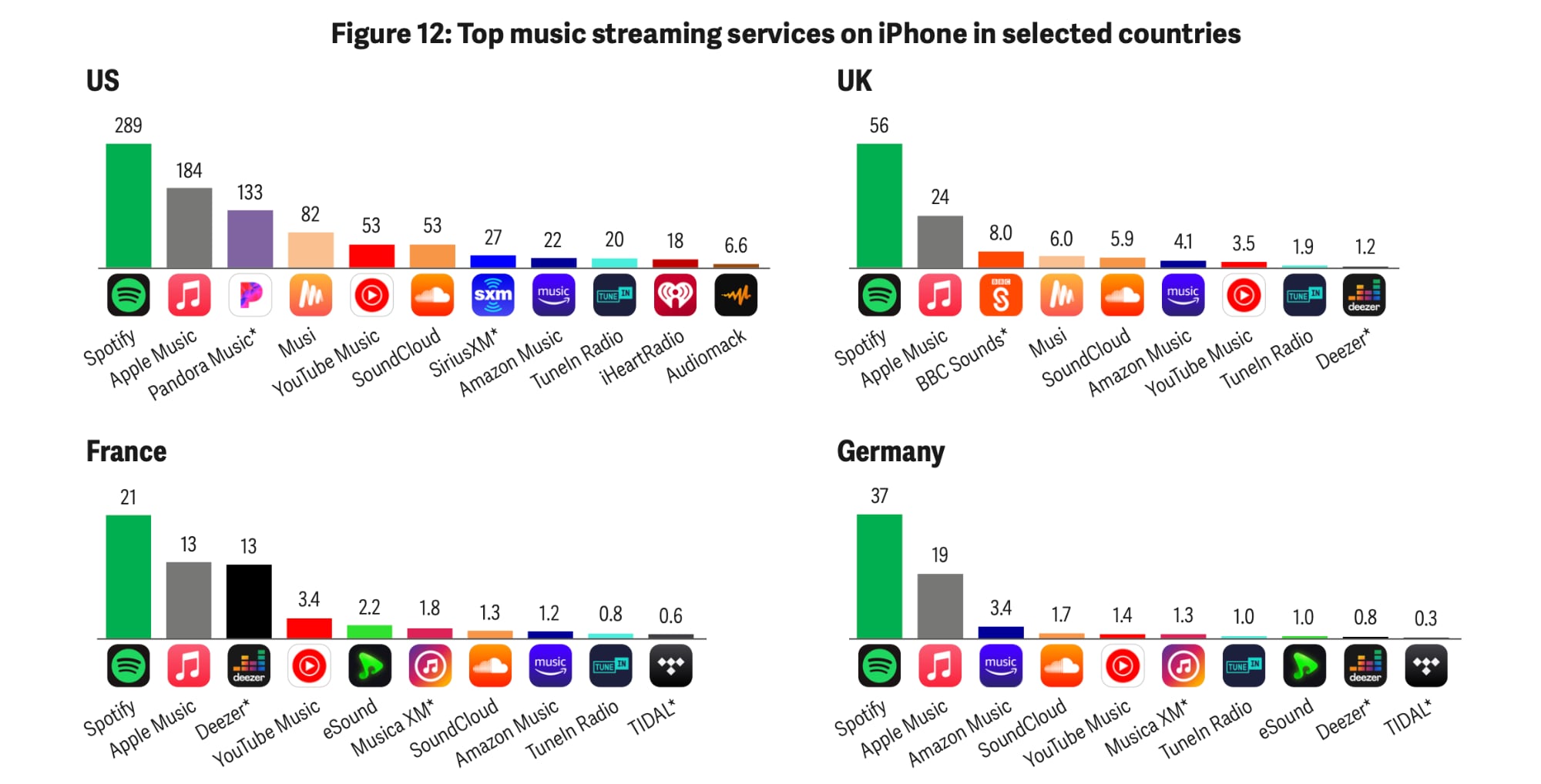There is no such thing as a completely unbiased report.I’m sure this report contains no bias…
Got a tip for us?
Let us know
Become a MacRumors Supporter for $50/year with no ads, ability to filter front page stories, and private forums.
Apple-Commissioned Study Highlights Success of Third-Party Apps
- Thread starter MacRumors
- Start date
- Sort by reaction score
You are using an out of date browser. It may not display this or other websites correctly.
You should upgrade or use an alternative browser.
You should upgrade or use an alternative browser.
There is no such thing as a completely unbiased report.
True, but this is akin to asking the bank robber if things are on the up and up with their bank robbing operations.
So my take is that without 3rd party apps, iOS wouldn't be as successful, so Apple has to stop thinking they should be charging them for supporting Apple's platform and making it successful. None of those Apps are Apple's own with the exception of Music, which also gets to compete with other steaming services on the platform without having to pay its competitors a cut.
The big thing people are missing in this whole discussion is Apple will make the money somehow and developers will get screwed in the end. If apple is forced to allow 3rd party stores the cost for the Dev license will be based on revenue of the company, a very common practice.
I agree if only for the reason that Apple is not "reading the room" on purpose, and will wait until regulations are forced upon them, and blame the regulators for how things turn out.This whole situation is so frustrating and really worries me for the long term future of Apple overall.
A great company needs to be able to better read the room at this point and adjust accordingly.
Just endlessly digging in on their iOS App Store distribution and revenue collection monopoly is not the path for the future, nor is it forward looking and it sure as hell isn't responsive to the overall vibe around this topic around the world from consumers, governments and many developers.
Open up and LEAD please Apple.
Show us you're more than just a rent collection operation.
If apple is forced to allow 3rd party stores the cost for the Dev license will be based on revenue of the company, a very common practice.
Sounds like that will need to be regulated to something reasonable then.
Let's not be fatalistic and defeatist here.
Apple can and will be reined in on this stuff
It's up to them how much pain they endure in the process.
Think of all the wasted effort, time and money on the Apple side trying to endlessly do "the least amount of compliance possible". It's so depressing.
They need to lead on solutions that will appease governments and other interested concerns.
Commissioning studies about "how great it currently is", is not the answer.
Well, can’t innovate anymore my ass. 🤣This whole situation is so frustrating and really worries me for the long term future of Apple overall.
A great company needs to be able to better read the room at this point and adjust accordingly.
Just endlessly digging in on their iOS App Store distribution and revenue collection monopoly is not the path for the future, nor is it forward looking and it sure as hell isn't responsive to the overall vibe around this topic around the world from consumers, governments and many developers.
Open up and LEAD please Apple.
Show us you're more than just a rent collection operation.
So the gist of the report is if it wasn’t for third party developers the App Store would suck?
Except when you leave out critical details that put your facts into context. Like the fact that Apple's own apps have access to the OS that no other apps have, and that Apple is fully in control of what apps can and cannot do. They can create any competitive advantage for their own apps that they want. And they have, regularly.Damn. FACTS, I hate that when somebody actually uses facts to debunk false narratives. That's why they are called false narratives folks, you can't go around debunking them with actual facts!
Haha. Obviously not a programmer. It’s called Xcode, and frameworks. Developers have access to them, have for yearsI think this is to refute the argument that "Apple plays favorites".
Most of these apps don't even have in-app purchases enabled so they're not paying Apple any % of revenue on iOS in the first place.
I do think there is work to be done so non-Apple apps have the same access to system resources like email, calendars, music playing, messaging, etc rather than being forced into their own sandbox. But there's a lot of privacy issues and several of these apps are outright spyware on Android unless you go to extreme measures to throttle them. That's a bit of an oxymoron though... apps complain they are "sandboxed" from services like Siri, yet at the same time they go out of their way not to pay Apple anything. So why would Apple spend money to supply them better?
Depends how you define anti-competitive. If you define it like the law does, no they are not. Lots of competition, lots of players, lots of products, no market dominance. I guess the success Apple has is because it does make competitive products, ergo people buy themApple is Anti-Competitive my ass. Always was and always will be pure BS
So if the "key differentiator" was that Apple apps have special access to the OS, then why are the Apple apps not leading in all categories? This report would seem to show that , when it comes to strictly app usage, that these other companies who are complaining seem to be doing just fine. How is it a "huge competitive advantage" if they aren't winning based on that particular merit?Apple puts all these metrics up about how "few" apps Apple has that compete with third party apps.
What Apple neglects to mention is that they control the OS that the apps run on, and Apple's apps have special access to the OS and to each other that third party apps do not have. Apple's apps can do things that third party apps cannot, because Apple says so.
Apple: if this huge competitive advantage didn't exist in the first place, you would never need a study to point out that 60 apps is not a lot compared to 1.8 million.
It is a such pointless and insulting study, because at any time Apple can squash any app by making their own version, that is better, and is only better because it can do things Apple won't allow the third party version to do.
Well that’s a little unfair.It also breeds complacency and laziness. Why continue to innovate when you can just skim off the top from everyone else to boost your profits?
I’ve found the apple apps actually work properly and are decent quality. The rest is an ocean of poop with a few jewels floating in it like sweetcorn.
I call BS on that one. Please try to prove your point. What? You can’t cause you are wrong. DarnExcept when you leave out critical details that put your facts into context. Like the fact that Apple's own apps have access to the OS that no other apps have, and that Apple is fully in control of what apps can and cannot do. They can create any competitive advantage for their own apps that they want. And they have, regularly.
Xcode contains all the frameworks necessary for developers to access features and components of the OS that Apple uses. If you are referring to some new features that are still in development then of course they have not been released yet. Can you say still in development?
But I think we all would love to hear how you back up your argument. You did see how Apple doesn’t dominate with its own apps? Hmmm developers are raising the bar on the stock apps to get additional sales. Must be because they can’t get access to feature sets. Who knew?
I get that there can be safety/security issues with some apps. Is there not an easy (and fair) way for Apple to have an approval process for iOS apps but allow them to be purchased/downloaded outside of the App store if so desired?
All these apps also exist on Android. Why isn't Android equally as popular and profitable?So my take is that without 3rd party apps, iOS wouldn't be as successful, so Apple has to stop thinking they should be charging them for supporting Apple's platform and making it successful. None of those Apps are Apple's own with the exception of Music, which also gets to compete with other steaming services on the platform without having to pay its competitors a cut.
It not a competitive advantage because the point of the platform is giving developers access to APIs that would otherwise remain private. While some are kept internal far more are released. There are several hundred new features and APIs released each year at their WWDC. The ones they keep private are features designed to differentiate the iphone and iPad in the marketplace. It would be impossible to maintain any secrecy around new products and features if they put them out there too early.Apple puts all these metrics up about how "few" apps Apple has that compete with third party apps.
What Apple neglects to mention is that they control the OS that the apps run on, and Apple's apps have special access to the OS and to each other that third party apps do not have. Apple's apps can do things that third party apps cannot, because Apple says so.
Apple: if this huge competitive advantage didn't exist in the first place, you would never need a study to point out that 60 apps is not a lot compared to 1.8 million.
It is a such pointless and insulting study, because at any time Apple can squash any app by making their own version, that is better, and is only better because it can do things Apple won't allow the third party version to do.
This is how apple stays ahead of Android by several years with feature that matter and will move the needle.
The other reason is because it’s a lot easier deploy an internal app and be able to manage the rollout and decide later if it makes sense to develop it further do 3rd party access.
I prefer that to Google’s Method of announcing or even releasing something half baked and later canceling it because it didn’t make sense.
Where specifically is that a common practice? I’ve never personally seen an example where the licensing cost for engineering software is based on the revenue of the company that licenses it. You pay the same flat fee whether your company loses money or makes it.The big thing people are missing in this whole discussion is Apple will make the money somehow and developers will get screwed in the end. If apple is forced to allow 3rd party stores the cost for the Dev license will be based on revenue of the company, a very common practice.
Apple should be comparing how the apps do on iOS vs on Mac.
If everything were fair, we'd expect to see the same portion of users opt for, say, Safari on a Mac as Safari on the iPhone.
But we know that isn't at all the case. Safari is around 20% on the Mac vs over 60% on iOS.
How about Apple Music vs Spotify on the Mac vs iOS?
If everything were fair, we'd expect to see the same portion of users opt for, say, Safari on a Mac as Safari on the iPhone.
But we know that isn't at all the case. Safari is around 20% on the Mac vs over 60% on iOS.
How about Apple Music vs Spotify on the Mac vs iOS?
Seems to me that Apple has to change radically in order to save the ecosystem. They need to stop treating the App store as a cash cow. IMO the only way they will be able to keep the app store is to:
- Stop charging developers commission and start charging for services rendered - evaluating the submission to the store, downloads, storage, advertisements, collating user reviews, etc. - maybe using a non-linear scale so that wealthier developers pay more than the little fish (and perhaps make charities exempt). Make this a zero-cost centre for Apple through these charges, so Apple doesn't look like it is gouging consumers. Why woudl Apple do this? Because alternative app stores will destroy not just the app store, but the entire ecosystem. I don't want popular companies offering their apps on dodgy cheap app stores that are essentially the Wild West. The obligatory Apple app store is the only way to prevent this.
- Start guaranteeing the security of apps in the store. You can't argue the app store and the walled garden is all about security without – you know – providing security.
Apple today shared a new App Store study that it commissioned from economists at Analysis Group, with the report highlighting the success of third-party developers on the App Store. The study comes as Apple is facing concerns about the prioritization and dominance of its apps on the App Store as well as regulatory pressure to open up iOS to sideloading and alternate app store options.

Apple's aim is to offer up facts on the ecosystem the App Store has created and the content that developers are creating for it. The first part of the study focuses on the numerous ways that developers can reach consumers outside of the App Store, through non-iOS devices like other smartphones, PCs, and consoles and through other digital marketplaces.

The second part of the study focuses on the growth of the App Store over time (there are now 1.8 million apps), 99.9 percent of which are third-party apps as the study is quick to point out that Apple has just 60 apps that are competing with third-party apps.
The final part of the study focuses on the breadth of third-party apps that are available as alternatives to Apple-created apps, and it points out that for many categories like social networks, food, travel planning, and dating services, third-party apps are the only option as Apple does not compete in these categories. It also points out that across most app types, Apple's apps are "eclipsed in popularity and account for a relatively small share of usage."

As an example, the top apps in each App Store category are listed and compared against Apple apps. In the U.S., Spotify is 1.6x more popular than Apple Music among Apple users in terms of daily active users or time spent in the app, and Netflix is 17x more popular than Apple TV+, and Apple's share among TV apps has never exceeded four percent in the countries included in the study. "Apple's own apps are rarely the most popular app of a particular type, and account for a small share of app usage," reads the report.
Apple's share of most app categories falls below 40 percent, according to the study, and is often lower. When it comes to communication apps like Phone, Messages, and others, Apple has a 41 percent share in the U.S. because it competes with WhatsApp, Messenger, Instagram, and others, and for the maps category, it has a 36 percent share. In the TV category, it has a three percent share, and in the reading category, it has an eight percent share.

The study takes a deep dive into several app categories where Apple competes, including communication, reading, music streaming, mapping, TV and video streaming, games, health and fitness, and news.

Average listening time per day by iPhone users
Apple in the newsroom article on the study pulls out several specific report highlights that it found notable:
Apple also uses the newsroom article to point out the wide range of tools that it makes available to developers, along with the investments that it makes in the "next generation of developers" with tools like Everyone Can Code, App Development in Swift, and Swift Playgrounds.
- Third-party apps are the only options for consumers for entire types of apps, including social networking, dating services, travel planning, and food and drink.
- Leaders in app types often vary across countries, with many regional leaders outperforming their globally competitive counterparts.
- Third-party apps are the most popular among iPhone users in most regions for major app types, including music streaming, TV and movie streaming, reading, communication, and mapping apps.
- Across many app types, Apple's own apps account for a relatively small share of app usage among iPhone users. This is the case even though some Apple apps are preinstalled to enable core functionality of the device.
- iPhone users often use multiple apps within a single category, especially apps for communicating, reading the news, watching videos, or navigating -- underscoring how easily users can switch between apps and the breadth of opportunity for developers.
Apple said that it does not expressly plan to provide this data to regulators like those developing the Digital Markets Act in Europe, but it is a public study and the company hopes regulators will take notice of the data and facts made available.
All of the data used for the study was sourced from Data.Ai (App Annie), and it looked at metrics like active users, time spent in apps, and total number of downloads. Though the data was sourced from a third-party measurement tool because Apple has limited data of its own, the company did say that it is partnering on the study and thus the data was within the realm of what's reflected in the internal information that Apple does have access to.
The full Analysis Group study on third-party apps on the App Store can be read on Apple's website
Article Link: Apple-Commissioned Study Highlights Success of Third-Party Apps
Register on MacRumors! This sidebar will go away, and you'll see fewer ads.


